The LEEAP is a first step to a safer, healthier, and greener city.
Delivering programmes for building renovation is first an institutional development issue. Lack of domestic sources of capital is rarely the true barrier. Lack of policies, weak framework conditions, inadequate organizational and institutional frameworks for building renovation projects, and lacking access to funds are the most typical problems. Mechanisms and policies to capture the opportunities for investment in building renovation need to be strengthened both in Mongolia and Ulaanbaatar.
GIZ developed a Local Energy Efficiency Action Plan (LEEAP) to improve the energy efficiency of the building sector in Ulaanbaatar in collaboration with a working group consisting of representatives from the Ulaanbaatar City Governor’s Office, the Ministry of Construction and Urban Development, the Ministry of Energy, the Energy Regulatory Commission, and NGOs.
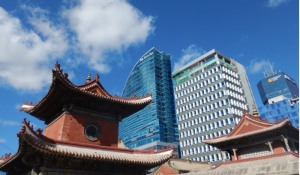 Energy Efficiency: Challenge in the world’s coldest capital
Energy Efficiency: Challenge in the world’s coldest capital
Climate change and air pollution are two of the major challenges that Mongolia faces in this century with winter temperatures down to -40 C and coal as main heating source. Finding interventions aiming to improve energy efficiency and reducing emissions has become imperative to safeguard the health of people. Air quality monitoring reports revealed that as of January 2019, the 24-hour mean levels of all measured values were much higher (PM2.5: 3.9 times, PM10: 2.5 times, SO2 34% and NO2 14%) than target thresholds for air quality standards in Ulaanbaatar. The population of Ulaanbaatar has increased by 28.5% during the last 10 years and so did greenhouse gas emissions and air pollution. Therefore, the City of Ulaanbaatar is setting its priority to become a safe, healthy and green city that is resilient to climate change, providing a liveable environment for its residents through appropriate land use, planning, infrastructure, and housing.
Our approach
GIZ Mongolia is cooperating with the City of Ulaanbaatar (MUB) to work in die building sector as on one of the most important sectors to tackle this challenge. A Local Energy Efficiency Action Plan (hereinafter LEEAP) for the City of Ulaanbaatar with practical and immediately applicable actions was introduced to addresses four different building sectors: public buildings, multifamily apartment buildings, residential buildings in ger districts and new constructions.
What is a Local Energy Efficiency Action Plan?
This LEEAP is a first step to a safer, healthier, and greener city; establishing a common understanding of the starting point with a first quantification of the scale of the problem and a set of short, mid, and long-term targets.
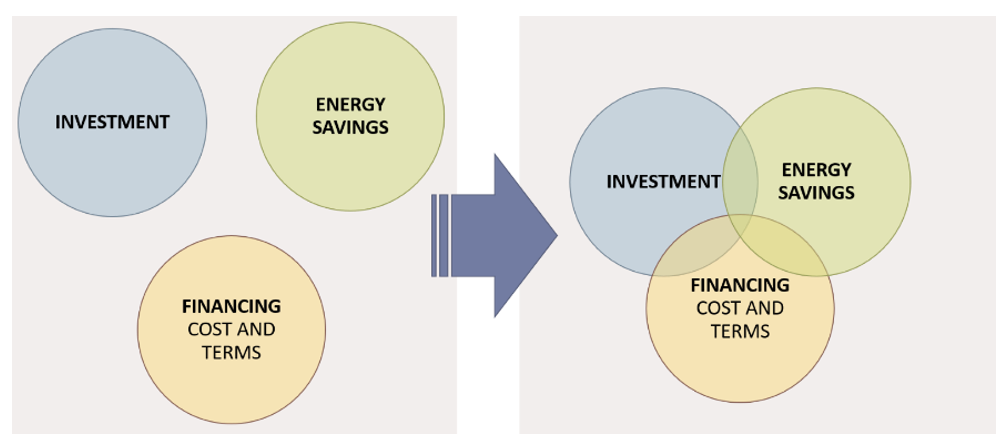 LEEAP is to be used as a guiding document and reference for budgeting programmes and operational planning of Ulaanbaatar and aims to integrate the so far separately acting areas of public and private investment, financing and the motivation to save Energy within one system.
LEEAP is to be used as a guiding document and reference for budgeting programmes and operational planning of Ulaanbaatar and aims to integrate the so far separately acting areas of public and private investment, financing and the motivation to save Energy within one system.
For reaching the LEEAP’s objectives, the City of Ulaanbaatar has identified 15 core actions:
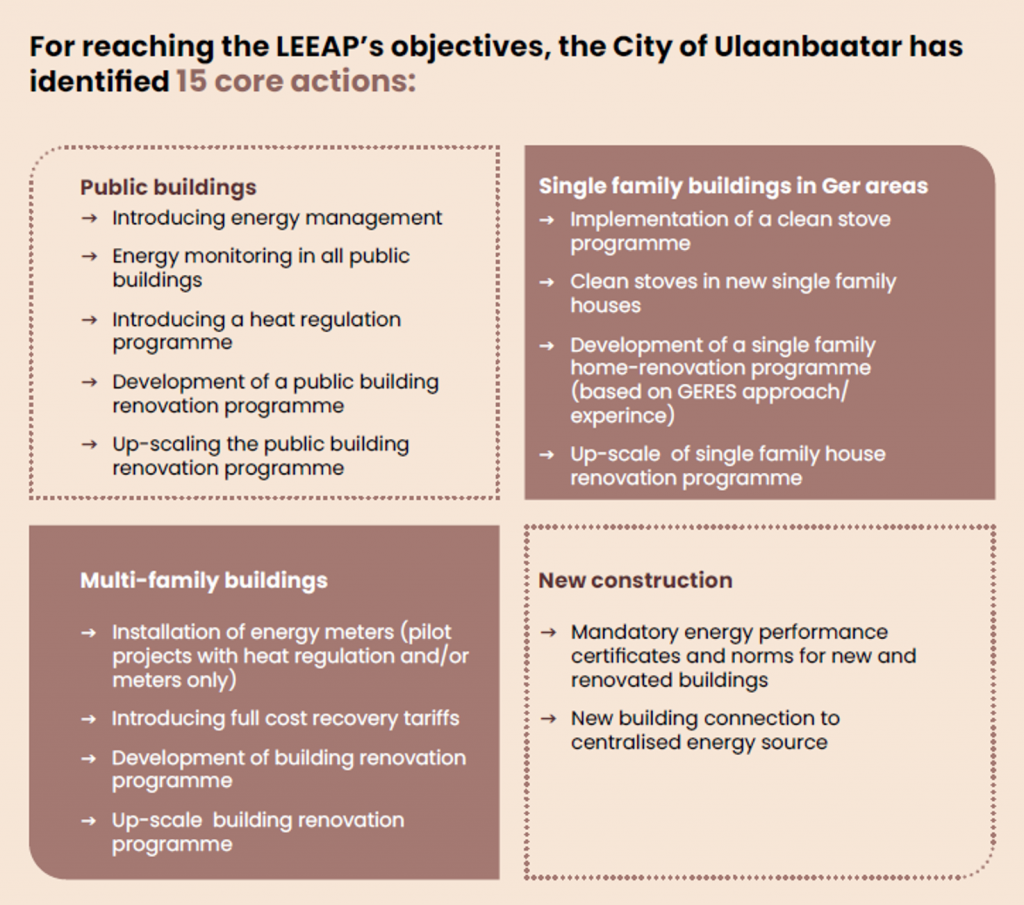
Why is LEEAP important for the City of Ulaanbaatar and other regions in Mongolia?
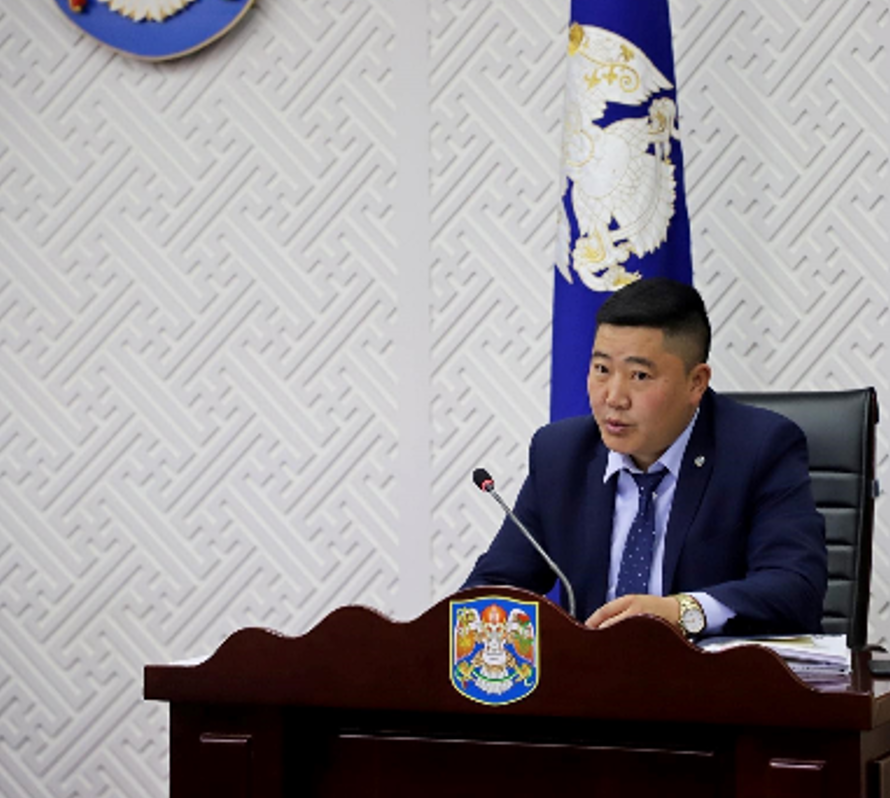 Mr. Kherlen.T Head of Engineering Department of MUB.
Mr. Kherlen.T Head of Engineering Department of MUB.
“The action plan includes estimates on how much the City can reduce greenhouse gas emissions and improve energy efficiency levels by the year 2040.
The actions described in this plan will enable Ulaanbaatar to reach important energy efficiency targets and most importantly also improve air quality. The LEEAP also includes monitoring and energy management actions, which will support the City of Ulaanbaatar to develop new climate and energy efficiency goals and plans in the future.”
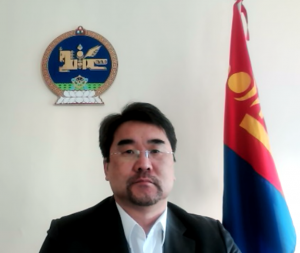 Mr. Gantulga.D Head of Implementation Department of Ministry of Construction and Urban Development (MCUD).
Mr. Gantulga.D Head of Implementation Department of Ministry of Construction and Urban Development (MCUD).
“The purpose of the Local Energy Efficiency Action Plan is to integrate energy efficiency in the building sector. Therefore, this issue is relevant to our ministry. We will focus on developing and implementing LEEAP nationally.”
How was the LEEAP developed?
LEEAP was a cooperation between the City of Ulaanbaatar, Ministry of Construction and Urban Development, Energy Regulatory Commission and GIZ Energy efficiency in Buildings project (EEP/PIE2), local and international consultants.
The process for developing a LEEAP is shown below.
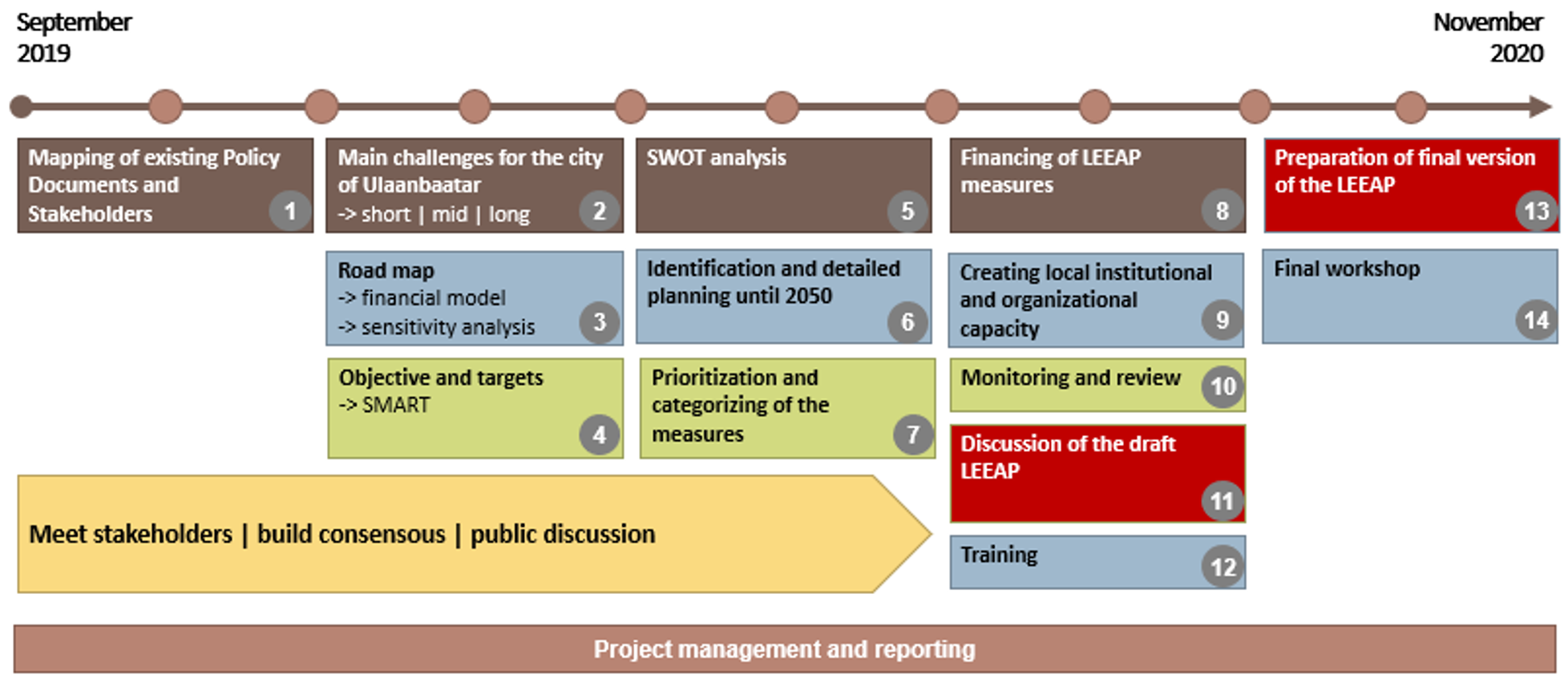
Want to know more?
For more Information please Contact: sereejav.tsetsgee@giz.de
